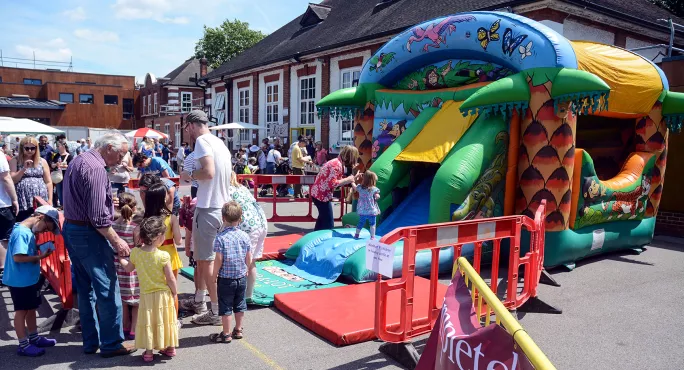Sometimes it feels like we’re living in an age where individualism matters more than ever before. The evidence, both blatant and in more insidious forms, is all around us - just look at the rampant egotism of so many world leaders for starters.
Think, too, of the constant emphasis on self-improvement; this may seem benign, but becomes problematic if valued above all else.
There is so much emphasis on “following your dreams” and “achieving your potential” - look at the inspirational platitudes that spread like wildfire on social media, or on any of the many wildly popular TV reality or talent shows, from Love Island to MasterChef. Meanwhile, the online world’s algorithms siphon us off into hermetic corners where our biases are validated rather than challenged, where each of us has our ego stroked as we are implicitly told that, yes, we do know best.
When the individual’s interests are prioritised, when the self is validated to the point of narcissism, the idea of common cause often appears relegated to an afterthought. And we’re in a pickle if “how can I realise my dreams?” trumps “how can I make the world a better place?” as the dominant search term for a fulfilling life.
If there’s anywhere that a genuine and palpable sense of community still thrives, it’s in a successful school (and by “successful” I mean in the broad, multifaceted sense, not success as measured primarily by how many students rack up five Highers).
Last Saturday, the joy of community was clear when I headed to Falkirk High School, whose summer fair felt like a staging post on the way out of two years of isolation and loneliness enforced by Covid. There were communities within a community, bouncing off each other and forging new connections: the kilted, fundraising Scouts ushering parents over to their friends at the awareness-raising LGBT+ table; the recently arrived refugee children getting a kick out of throwing a wet sponge at the headteacher; the eloquent students explaining the UN Convention on the Rights of the Child to passing grandparents picking at a jam scone.
There was a similar feel at the primary school sports day I went to this month - fuelled by the same chaotic joy I remember from my own schooldays - and also at the first annual gatherings of the EIS and SSTA teaching unions I hadn’t been to in person since 2019: people revelled in the feeling of shared endeavour, at reconnecting with people they were forcibly separated from during the pandemic.
One thing Covid has shown us beyond doubt is how we yearn for community, and how distressing it is when communities are splintered.
Just this week, University of Glasgow academics behind a new scheme designed to help support children struggling in the wake of the pandemic have described Covid as a “collective trauma”. They underlined that it is still far too early to gauge how badly children have been affected by the isolation and loss they have suffered in these past two-and-a-half years.
Schools are at their best when they forge a sense of community and collective endeavour - and that interconnectedness will be more crucial than ever in the months and years ahead.
Henry Hepburn is Scotland editor at Tes. He tweets @Henry_Hepburn





